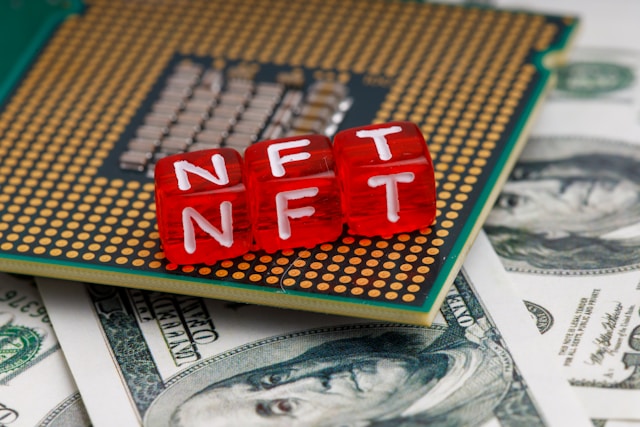
- November 5, 2023
- Personal Finance Advisor
- 0
Tax-efficient investing is a strategic approach to managing your investments that takes into account the tax implications of buying, holding, and selling specific securities. The goal is to maximize your after-tax returns, which can significantly impact your overall investment performance. This approach is not about evading taxes but about understanding how taxes affect your returns and making smart decisions accordingly. It involves choosing the right types of investments, accounts, and strategies that align with your financial goals and tax situation. It’s important to note that tax-efficient investing is not a one-size-fits-all strategy; it varies based on individual circumstances such as income level, age, risk tolerance, and investment goals. Therefore, it’s crucial to have a clear understanding of tax-efficient investing to make informed decisions that can help you grow your wealth while minimizing tax liability.

Understanding Tax Efficiency in Investments
Understanding tax efficiency in investments is crucial for maximizing your returns. Essentially, tax efficiency refers to the structuring of an investment so that it produces the least amount of tax liability. This can be achieved through various methods such as investing in tax-efficient funds, utilizing tax-advantaged accounts, or strategically timing the buying and selling of assets. The goal is to minimize the amount of taxes paid on investment gains, dividends, and interest. Different types of investments have different tax implications. For instance, some investments may be subject to capital gains tax, while others may be taxed as ordinary income. Understanding these nuances can help investors make more informed decisions and potentially save a significant amount in taxes. Therefore, gaining a solid understanding of tax efficiency in investments is a vital step towards achieving your financial goals.
Importance of Tax Efficient Investing
The importance of tax-efficient investing cannot be overstated. It is a crucial aspect of wealth management and financial planning that can significantly impact your overall returns. By structuring your investments in a tax-efficient manner, you can potentially save a substantial amount of money that would otherwise be paid in taxes. This can help you grow your wealth more quickly and effectively. Tax-efficient investing involves choosing the right types of investments, accounts, and strategies that align with your financial goals and tax situation. It’s not just about maximizing returns, but also about minimizing tax liability. This approach requires a deep understanding of tax laws and regulations, as well as the various investment options available. Therefore, it’s often beneficial to seek advice from tax and investment professionals. Remember, every dollar saved in taxes is another dollar that can be reinvested to generate more wealth.

Strategies for Tax Efficient Investing
Investing in a tax-efficient manner is a strategic approach that can significantly enhance your overall returns. One of the most common strategies is to hold investments that generate capital gains, which are typically taxed at a lower rate than ordinary income, in taxable accounts. Another strategy is to invest in tax-efficient funds, such as index funds or ETFs, which tend to have lower turnover and thus generate fewer taxable distributions. Additionally, utilizing tax-advantaged accounts like IRAs or 401(k)s can provide significant tax savings. These accounts either allow for tax-free growth or tax deductions on contributions, depending on the type of account. Lastly, tax-loss harvesting, which involves selling investments at a loss to offset capital gains, can also be an effective strategy. However, it’s important to consult with a tax professional or financial advisor to ensure these strategies align with your overall financial goals.
Types of Tax-Efficient Investment Accounts
Investing in tax-efficient accounts is a strategic way to maximize your returns by minimizing your tax liability. There are several types of accounts that offer tax advantages. Firstly, retirement accounts like 401(k)s and IRAs allow you to contribute pre-tax dollars, which can lower your taxable income. Earnings in these accounts grow tax-deferred until retirement. Secondly, Health Savings Accounts (HSAs) and Flexible Spending Accounts (FSAs) are tax-advantaged accounts for healthcare expenses. Contributions are made pre-tax, and withdrawals for eligible expenses are tax-free. Lastly, education savings accounts like 529 plans and Coverdell ESAs offer tax-free growth and withdrawals for qualified education expenses. Each of these accounts has specific rules and contribution limits, so it’s important to understand these before investing. By strategically using these tax-efficient accounts, investors can significantly reduce their tax burden and increase their overall returns.
Financial Products for Tax-Efficient Investing
Financial products play a crucial role in tax-efficient investing. These are designed to provide investors with opportunities to grow their wealth while minimizing their tax liabilities. Some popular tax-efficient financial products include index funds and exchange-traded funds (ETFs). These funds typically have low turnover rates, meaning they buy and sell securities less frequently. This results in fewer taxable events, making them more tax-efficient. Another product is the tax-managed fund, specifically designed to minimize taxes. They employ strategies like selling securities at a loss to offset gains, which can reduce the investor’s tax bill. Additionally, municipal bonds can be a good option. The interest earned on these bonds is generally exempt from federal taxes and sometimes state and local taxes. Lastly, life insurance policies and annuities can also provide tax benefits. However, it’s essential to understand the terms and conditions of these products, as they can also have tax implications.
Tips for Maximizing Returns through Tax-Efficient Investing
Maximizing returns through tax-efficient investing involves a variety of strategies. One key tip is to hold investments for at least a year before selling, as long-term capital gains are typically taxed at a lower rate than short-term gains. Another strategy is to invest in tax-efficient funds, which are designed to minimize taxable distributions. These funds often have low turnover rates, meaning they buy and sell securities less frequently, resulting in fewer taxable events. Additionally, consider utilizing tax-advantaged accounts like IRAs and 401(k)s, which offer tax deductions, tax-free growth, or tax-free withdrawals in retirement. Lastly, consider tax-loss harvesting, a strategy that involves selling investments at a loss to offset capital gains. However, it’s important to consult with a tax professional or financial advisor to ensure these strategies align with your overall financial goals and risk tolerance.
Professional Services for Tax Efficient Investing
Professional services for tax-efficient investing can be a valuable resource for investors seeking to minimize their tax liability. These services, often provided by financial advisors, tax consultants, or wealth management firms, offer expert advice and strategies tailored to an individual’s specific financial situation and goals. They can help investors understand complex tax laws, identify tax-efficient investment opportunities, and structure their portfolio in a way that maximizes returns while minimizing tax. These professionals stay updated on the latest tax laws and regulations, ensuring that their clients’ investment strategies are always optimized for tax efficiency. They can also assist with tax planning and filing, helping investors avoid costly mistakes and take advantage of all available tax benefits. By leveraging professional services for tax-efficient investing, investors can navigate the complexities of tax laws with confidence and focus more on growing their wealth.
Finding Experts in Tax-Efficient Investing
When it comes to tax-efficient investing, having an expert by your side can make a significant difference. These professionals have a deep understanding of tax laws and investment strategies, and they can provide personalized advice based on your financial goals and circumstances. Financial advisors, tax consultants, and wealth management experts are some of the professionals who specialize in this area. They can help you identify tax-efficient investment opportunities, structure your portfolio to minimize tax liability, and plan for long-term tax efficiency. It’s important to choose an expert who has a strong track record and understands your risk tolerance and investment goals. They should also be able to explain complex tax concepts in a way that’s easy to understand. Remember, tax-efficient investing is not just about saving on taxes; it’s about maximizing your after-tax returns and achieving your financial objectives.
Conclusion: The Future of Tax-Efficient Investing
In conclusion, the future of tax-efficient investing looks promising as more investors become aware of the significant impact taxes can have on their overall returns. As tax laws continue to evolve, it’s crucial for investors to stay informed and adapt their strategies accordingly. The rise of technology and financial services has made it easier for individuals to access resources and experts in tax-efficient investing. Furthermore, the increasing popularity of tax-advantaged accounts and financial products has provided investors with more opportunities to minimize their tax liabilities. However, it’s important to remember that tax efficiency is just one aspect of a comprehensive investment strategy. Investors should also consider factors like risk tolerance, investment goals, and time horizon. As always, seeking professional advice can be beneficial in navigating the complexities of tax-efficient investing.




































